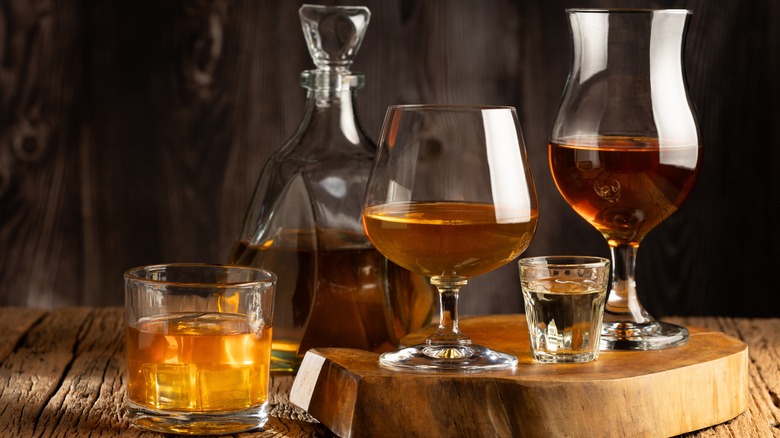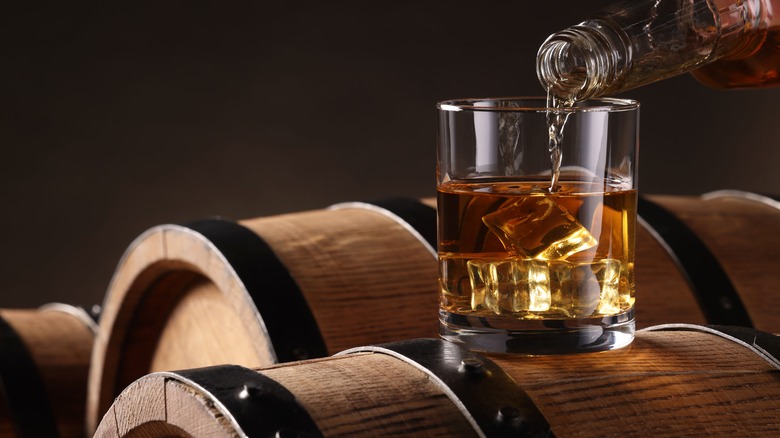What Does It Mean To Order A Stiff Drink?
A stiff drink is one of those phrases that many of us say without giving too much thought to exactly what it means. It's generally used to describe any alcoholic drink that is very strong. That might mean a high-proof spirit such as gin, vodka, whiskey, or Scotch, or it can also apply to a cocktail that is heavier on the alcohol than the mixers.
Spirit-forward drinks such as a dry martini (gin and vermouth), a Manhattan (whiskey, sweet vermouth, and bitters), or a Negroni (Anthony Bourdain's favorite cocktail, which consists of gin, Campari, and vermouth) don't contain any mixers at all to dilute the alcohol. They can be described as stiff drinks because, dating back to the Middle English period, the word stiff used to mean strong. Whereas these days, the word more commonly means firm and not easy to bend, it's still used in the context of strength when applied to boozy beverages.
There are certain connotations associated with asking for a stiff drink. The descriptor tends to be applied to a drink that will help the person consuming it to recover from something bad or to give confidence for something daunting coming up. Perhaps it's a stiff drink after a tough day or as liquid courage to help with having to make a speech in public, for example. But the phrase also has a historical link to a much darker practice, too — that of grave robbery and transporting the dead.
Stiff drinks have a dark origin story involving bodies and barrels
Just like the tale of how steak tartare started off as the food of warriors, the stiff drink has its own colorful origin story — and it's a particularly gruesome one. In fact, you might want to pour a stiff drink just to read about it. The story centers around grave robbers in the 1800s whose job was to remove corpses from graves so they could be used for medical training in universities.
These grave robbers needed a way to transport cadavers from burial sites to the research facilities, and rail was the best method. In an effort to hide the stench of decomposition, the bodies were stuffed into whiskey barrels filled with the spirit. To make extra money, so the legend goes, the whiskey was then sold to customers – who would literally be consuming a stiff drink.
It's debatable how much truth there is in the tales, though it is true that alcohol was occasionally used for preserving corpses, including that of Lord Nelson after the Battle of Trafalgar. His body was preserved in brandy for the 44-day voyage back to England by ship — though there's no record of sailors taking a swig of this booze. Whether it's a macabre joke or not, one thing's for sure: You'll never look at a Corpse Reviver — a historical cocktail, which is also a stiff drink thanks to its high alcohol content — the same way again.


